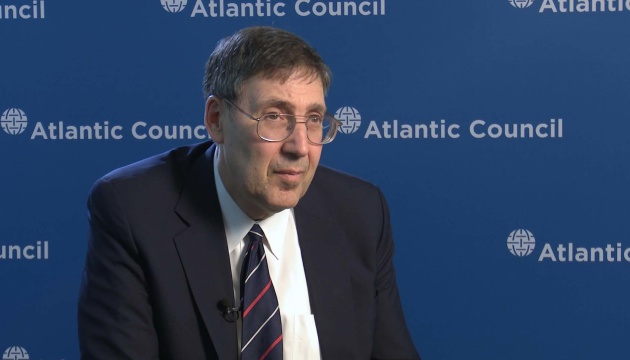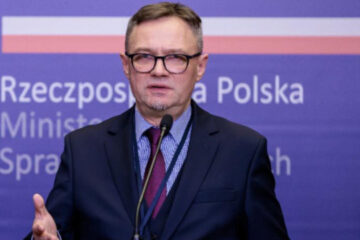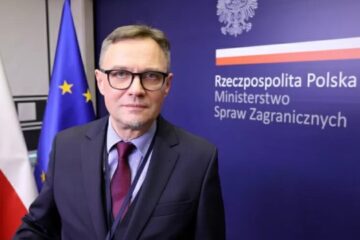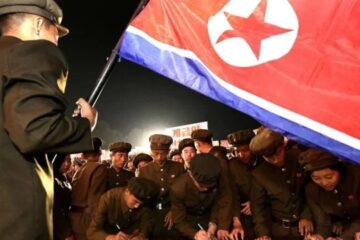The position of the Biden administration’s policy towards Ukraine, including inviting the country to join NATO and allowing it to use Western-supplied weapons for deep strikes inside Russia, could change after the U.S. presidential election on November 5. After all, Biden will be in charge of the White House until January 20 of next year, and after the voting, he will not be limited by political safeguards affecting the party’s ratings. However, while the probability of such changes does not seem high, the incumbent White House team needs more “wisdom and courage” to make decisions. John Herbst, director of the Eurasia Center at the Atlantic Council and former U.S. ambassador to Ukraine, spoke of this in more detail in an exclusive interview with Ukrinform.
U.S. HAS TO REGAIN WISDOM AND COURAGE TO STRENGTHEN ITS POLICY TOWARDS UKRAINE
– Let’s talk about the Victory Plan presented by Volodymyr Zelensky. One of the most difficult moments for some partners is inviting Ukraine to NATO. Could you please comment on how difficult this issue is to implement?
– Look, this remains a hard problem because especially the United States, also Germany, and a few other allies have been intimidated by Kremlin threats regarding the possible use of nuclear weapons. In a certain way, this has also gotten in the way of giving Ukraine all the weapons it needs on the battlefield and allowing them to use them as they see fit. And it’s gotten the way on progress towards Ukraine joining NATO. In the statement that goes back to the Bucharest Summit, then timidities in Germany and France were the most important factors. But today, that timidity is joined by America. We have this declared policy that Ukraine will join NATO, but there are no real steps towards making it happen.
– Can the Biden administration strengthen its policy towards Ukraine after voting in the U.S. elections on November 5?
– I think it could, and we’ve seen some talk of this. But right now, I have no indication they’re going to move in that direction. What I think we’ve seen from the Biden administration is paralysis, as Russia has escalated, not just in Ukraine, for example, with the introduction of North Korean troops, but also in its provocations against NATO in the West. It’s clear sabotage coming from Russian hands overflight of NATO airspace by drones and rockets heading towards Ukraine without NATO taking steps to shoot them down. What we’ve seen Is paralysis, and it’s really a problem for American national security.
– Can Ukraine do something to get closer to this goal and get the invitation to NATO?
– Ukraine needs to continue fighting as it was fought. And we have to regain our wisdom and our courage.
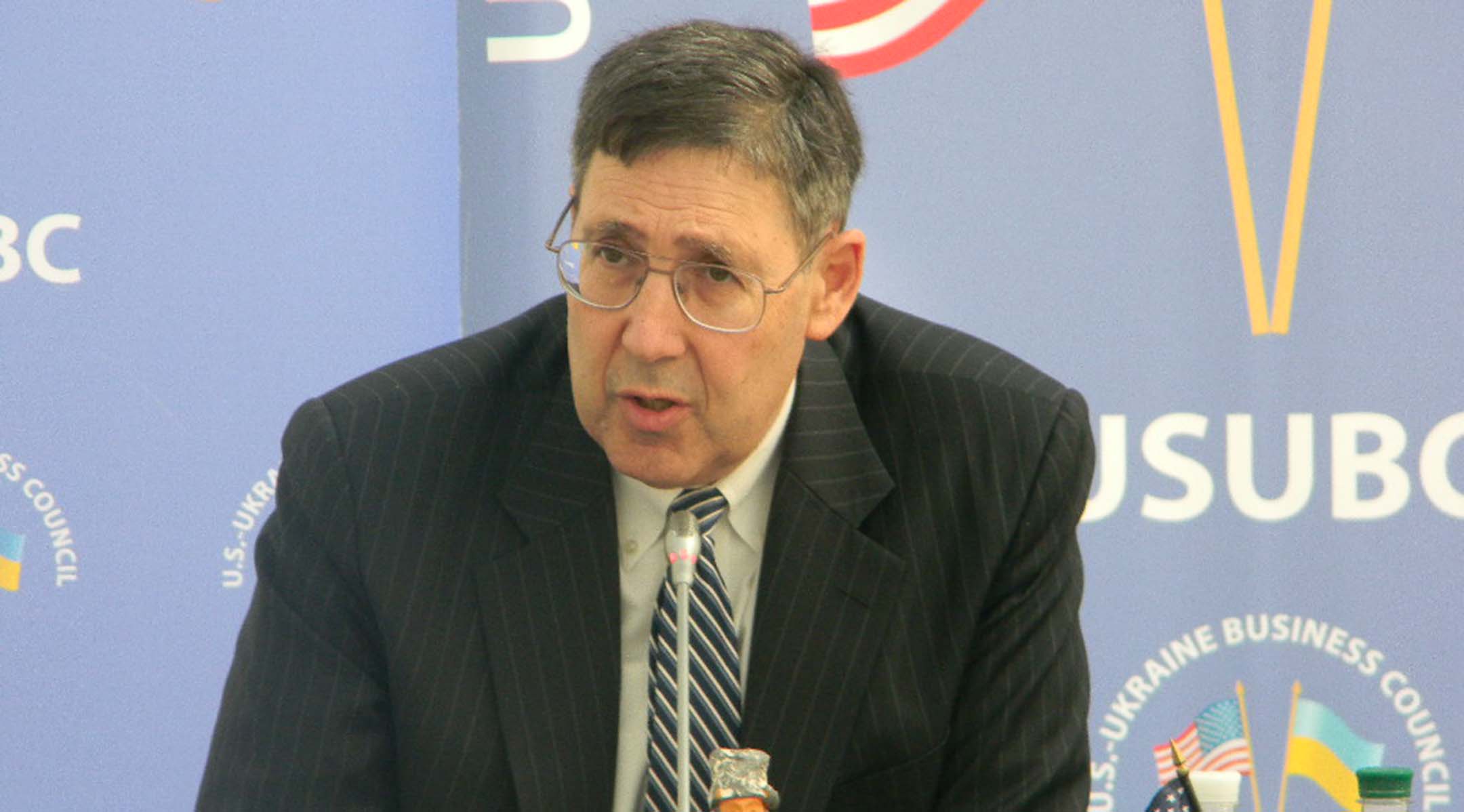
DEPLOYING NORTH KOREAN TROOPS TO UKRAINE IS A REAL CHALLENGE
– Let’s discuss another topic: the North Korean troops near the Ukrainian border. How much of a difference could this make on the battlefield?
– I don’t think it has. If we’re talking about 10,000 troops, I don’t think that has much of an impact. But, of course, the geopolitical consequences are real. Here, we have another power, essentially joining the war, and here, you have the United States expressing concern about it, acknowledging it’s happening. But when it’s asked, what are you going to do, we hear nothing. Again, that’s why I use the word paralysis to describe the policy of the Biden administration. Instead of using this month to demonstrate wisdom and strength, it’s paralyzed.
– Can this – I mean North Korean troops near Ukraine’s borders – change the approaches of the Biden administration and other allies in the matter of inviting Ukraine to NATO or canceling the ban on long-range strikes against targets in Russia?
– It should, and I don’t rule out that possibility, but right now, the possibility looks low.
The North Korean problem is related but not directly to NATO. It is directly related to the war and how it’s proceeding. Again, the administration keeps saying, “We don’t want to do this. We don’t want to risk escalation.” But the Russians are escalating. So all we’re doing is demonstrating weakness. And when the world’s democratic superpowers demonstrate weakness, aggressors take heart.
– What should be changed for Ukraine to be able to use long-range systems against targets in Russia?
– We need an infusion of courage in the Biden administration or senior levels. It’s that simple.
– And what about other allies, such as Germany?
– Look, there’s been a very close partnership between Scholz and Biden because they each recognize the same approach – the same weak approach in each other. So, they reinforce their own bad instincts. If the policy of Germany was determined by Merz, who said – I think very helpfully a couple of weeks ago: “We, the Germans, should tell Putin, if you don’t stop attacking Ukraine’s civilians and its civilian infrastructure, we’re going to give Ukraine TAURUSes and let Ukraine strike anywhere it wants.” That would engage the Biden administration to change its policy.
IF HARRIS WINS, WE WILL SEE CONTINUATION OF BIDEN’S POLICY, AND IF TRUMP WINS, DEVELOPMENTS MAY BE DIFFERENT
– The last question concerns the elections in the U.S. How can the Ukrainian issue be changed after the election, in your opinion?
– It looks like if Harris wins, we will see a continuation of Biden’s policy. It’s a good point, meaning the substantial aid it provides Ukraine and rallying the international community. And its weak spots, meaning the refusal to give Ukraine the weapons to win this war.
And if Trump wins, we don’t know what we’re going to see. There could be a cut-off in aid in the form we’ve heard from Don Jr, the president’s son, or from his vice presidential candidate. Or it could be the wisdom and strength we’ve seen in the past with O’Brien and Pompeo. If Tom Cotton becomes Secretary of Defense with one rumor, Pompeo, that would be a very good thing. Because Pompeo understands that it’s important that Ukraine win this war.
Yaroslav Dovgopol, Washington
Photo credit: Wikimedia and U.S.-Ukraine Business Council
Source: John Herbst, director of Atlantic Council's Eurasia Center

